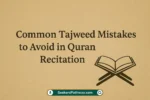Weddings are one of the most important milestones in a Muslim’s life. They are planned as a time of barakah and happiness, not anxiety and superstition. Superstitious beliefs: In some cultures, the month of Safar is believed to be a month of bad luck; therefore, marriages are avoided in this month, while in some other places, families arrange for weddings to be celebrated on a large scale or with grandeur in order to “counter the bad luck.” But Islam gives us a balanced perspective based on the Qur’an and Sunnah, which saves us from these disillusionments.
Origins of Extravagance
Over time, weddings became status symbols in many cultures. Families would compete with each other, going into debt and subjecting themselves to unnecessary rituals. These are not part of Islam.
Allah reminds us:
“And do not spend wastefully. Indeed, the wasteful are brothers of the devils, and ever has Satan been to his Lord ungrateful.”
(Surah Al-Isra 17:26–27)
Extravagance is displeasing to Allah, regardless of the occasion. The ceremonial glare does not add a blessing to the marriage; all it brings is a financial burden laden with arrogance.
Prophetic Guidance
The Prophet Muhammad ﷺ said:
“The most blessed marriage is the one with the least expenses.”
(Musnad Ahmad)
His own marriages were modest affairs defined by piety and mutual aid. No cultural show, no burden placed on families. The goal was to build a virtuous home, not to make a display.
Fiqh Perspective
It is not prohibited to marry during Safar or any month. Islam rejects superstition. The Qur’an clarifies:
“Indeed, the number of months with Allah is twelve… four of them are sacred.”
(Surah At-Tawbah 9:36)
Safar itself is not one of the sacred months, but its first day is one of the four monthly holy days. For a marriage to be successful, it is through intention (niyyah) and following halal, not the timing and how luxurious it is.

Practical Lessons for Believers
- Emphasise the importance of nikah as an ibadah.
- Stay away from debt spending, haram entertainment, or show-off traditions.
- Give sadaqah and make dua for barakah.
- Explain the Islamic way to others, patiently, wisely, and kindly.
Conclusion
A Safar wedding grounded in faith and Sunnah principles ensures true barakah. As Allah says:
“Say, nothing will happen to us except what Allah has decreed for us; He is our protector.”
(Surah At-Tawbah 9:51)
The ayah serves as an eye opener for the believers, that they have no shield of good fortune from some superstitions or some cultural practices, the providence and protection come from Allah. When marriages are based on taqwa and simplicity, they are the means to comfort, not calamity!










